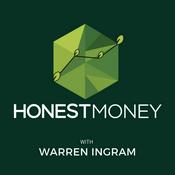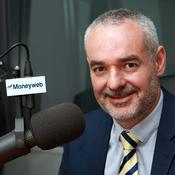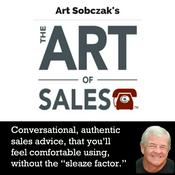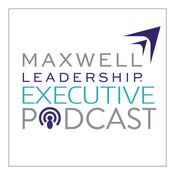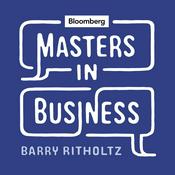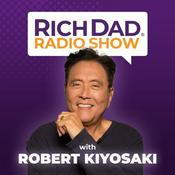163 episodes
- Recovering from a workplace injury takes time, patience, and in many instances, professional case management. Guests Cindy Bourbeau and Annie Barach with Massachusetts-based Medical and Life Care Consulting Services explain how nursing case management professionals help injured workers through recovery and the Workers’ Compensation program.
Misconception that they are “spies” for insurers in claims cases. In reality, medical case management professionals help patients understand and work through Workers’ Comp, advocating for them and helping insurance companies understand necessary care to ensure a full recovery.
Licensed case managers help with medical evaluations programs of care that help injured workers return to their jobs and get on with their lives. At times, our guests explain, there are complications in the system that are akin to “untangling a web.”
Hear how professional case managers help coordinate care, medicines, logistical concerns, insurance, treatment approvals, and therapy, helping patients maximize recovery and return to the best lives they can.
If you have thoughts on Workers’ Comp law or an idea for a topic or guest you’d like to hear, contact us at [email protected] or [email protected].
Learn more about your ad choices. Visit megaphone.fm/adchoices - Mental health plays a big role in workplace efficiency and safety, but it seems employers and employees view the topic differently. Guest Joseph Toppe, a longtime journalist and managing editor of the insurance news website PropertyCasualty360.com shares an interesting study from Pie Insurance.
In recent years, employee mental health has become a more prominent issue. You don’t see the physical injury, but the injury may be there just the same. Where do employers see the risks of mental health, and how does that compare to workers’ needs? Employers and employees don’t agree.
There’s a disconnect over workplace mental health that needs to be addressed. There needs to be a discussion. You can’t see a mental health injury the way you see a physical injury, but those injuries are real. And the evolution of AI and automation is only adding to the employee stress.
In small businesses, especially, claims for mental health injuries are on the rise. Do you understand this new frontier? Workers’ Comp doesn’t end with “slips, trips, and falls.”
If you have thoughts on Workers’ Comp law or an idea for a topic or guest you’d like to hear, contact us at [email protected] or [email protected].
Resources:
Articles by Joe Toppe
“Most U.S. Employers Say Mental Health Issues Contribute to Worker Absences,” by Joe Toppe
“New Report From Pie Insurance: Small Businesses Safety Priorities Shifting as Employee Needs Evolve, Survey Show” Pie Insurance
Learn more about your ad choices. Visit megaphone.fm/adchoices “Many ills may strike, but one must answer.” Medical Causation Standards in Workers' Compensation Claims
2025/11/25 | 32 mins.Causation and Workers’ Compensation? It’s complicated, and it varies by state. The concept is that to qualify for Workers’ Comp there must be a direct link between the injury (or illness) and the workplace. But how do you prove what’s a direct result of the workplace and what was the result of a prior injury or condition?
Here’s where it gets confusing. Every state has its own rules. There are varying degrees of required proof, pre-existing conditions, mental trauma, contributing causes, and it can be a challenge to sift through each jurisdiction’s standards.
Hosts Judson and Alan Pierce dissect how pre-existing conditions complicate work-related injury claims. It’s not always as clear as it seems, and state-by-state regulations create even more confusion. Add in workplace psychological stresses and it goes even deeper.
If you have thoughts on Workers’ Comp law or an idea for a topic or guest you’d like to hear, contact us at [email protected] or [email protected].
Mentioned in This Episode:
“AMA Guides® to the Evaluation of Permanent Impairment: An Overview”
“AMA Guides to Disease and Injury Causation,” by J. Mark Melhorn
Learn more about your ad choices. Visit megaphone.fm/adchoices- It’s not you, the Workers’ Compensation system has changed over time, and not always for the best. Guest Christopher Godfrey, with a long career in Workers’ Comp, including his current role as research director at the Workers' Injury Law & Advocacy Group (WILAG) and a lengthy stint running the office of Compensation Programs at the U.S. Department of Labor, offers some insights.
Where a non-adversarial atmosphere used to prevail within Workers’ Comp, Godfrey worries it has been driven toward a confrontational system with a struggle for unilateral control. That isn’t how a program aimed at making injured workers whole and getting them back to work started out.
Also concerning Godfrey is a lack of funding for the Federal Employees’ Compensation Program, making it difficult for injured federal workers to even find a doctor willing to accept them as patients.
In both state and federal systems, Workers’ Comp is being buffeted by politics. Godfrey notes the government shutdown, a slowing employment environment, and even the potential for a stock market bubble threaten the system. Economics and politics can build hurdles that trickle down to how insurance companies and Workers’ Comp plans operate. Godfrey shares his personal concerns and describes what WILAG is doing today to protect the rights of injured workers.
If you have thoughts on Workers’ Comp law or an idea for a topic or guest you’d like to hear, contact us at [email protected] or [email protected].
Mentioned in This Episode:
Previously on Workers’ Comp Matters, guest Kenneth Feinberg, “’A Patriotic Obligation;” Kenneth Feinberg and the 9/11 Fund”
Learn more about your ad choices. Visit megaphone.fm/adchoices - Workers’ Compensation has traditionally been a bargain, a “deal” workers and employers agree to. Workers injured on the job are compensated quickly and in exchange they don’t sue their employers. But when it came to a Virginia school teacher shot and seriously injured by a young student, was there an exception to the rule?
Recent law graduate Katie Jean won the Workers’ Compensation Lawyers John F. Burton Jr. Law Student Writing Competition with her entry “Rethinking the Intent Exception in the Case of Teacher Violence in Our Public Schools Modifying to Include Willful and Wanton Misconduct.” In it, she examines the case of teacher Abby Zwerner, shot by a 6-year-old with a documented pattern of disciplinary issues and had been seen at school with a gun.
Jean questions whether every school shooting can be ruled an accident for the purpose of Workers’ Compensation or if a known threat, with lack of corresponding action, entitles the injured teacher to sue for damages.
It’s an interesting issue, and at least one prior case involving a teacher injured by a student the school knew about was unsuccessful. Does a teacher “assume risk” by taking a job? This is a timely discussion and a sign of our times. Listeners who would like a copy of Jean’s award-winning paper to review may email the hosts at the addresses below.
If you have thoughts on Workers’ Comp law or an idea for a topic or guest you’d like to hear, contact us at [email protected] or [email protected].
Mentioned in This Episode:
“Virginia Teacher Shot by 6-Year-Old Student Can Proceed With $40M Lawsuit, Judge Rules,” NBC News
“Charge in Abby Zwerner's $40M Lawsuit Will Go to Jury Trial,” 13NewsNow
“Vallandigham V. Clover Park Sch. Dist.,” Casemine
Learn more about your ad choices. Visit megaphone.fm/adchoices
More Business podcasts
Trending Business podcasts
About Workers Comp Matters
Workers Comp Matters is hosted by Attorney Alan S. Pierce, the only Legal Talk Network program that focuses entirely on the people and the law in workers compensation cases. Nationally recognized Trial Attorney, expert and author, Alan S. Pierce is a leader committed to making a difference when workers comp matters.
Podcast websiteListen to Workers Comp Matters, Prof G Markets and many other podcasts from around the world with the radio.net app
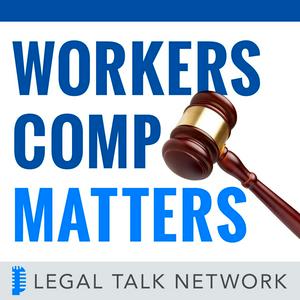
Get the free radio.net app
- Stations and podcasts to bookmark
- Stream via Wi-Fi or Bluetooth
- Supports Carplay & Android Auto
- Many other app features
Get the free radio.net app
- Stations and podcasts to bookmark
- Stream via Wi-Fi or Bluetooth
- Supports Carplay & Android Auto
- Many other app features


Workers Comp Matters
Scan code,
download the app,
start listening.
download the app,
start listening.





